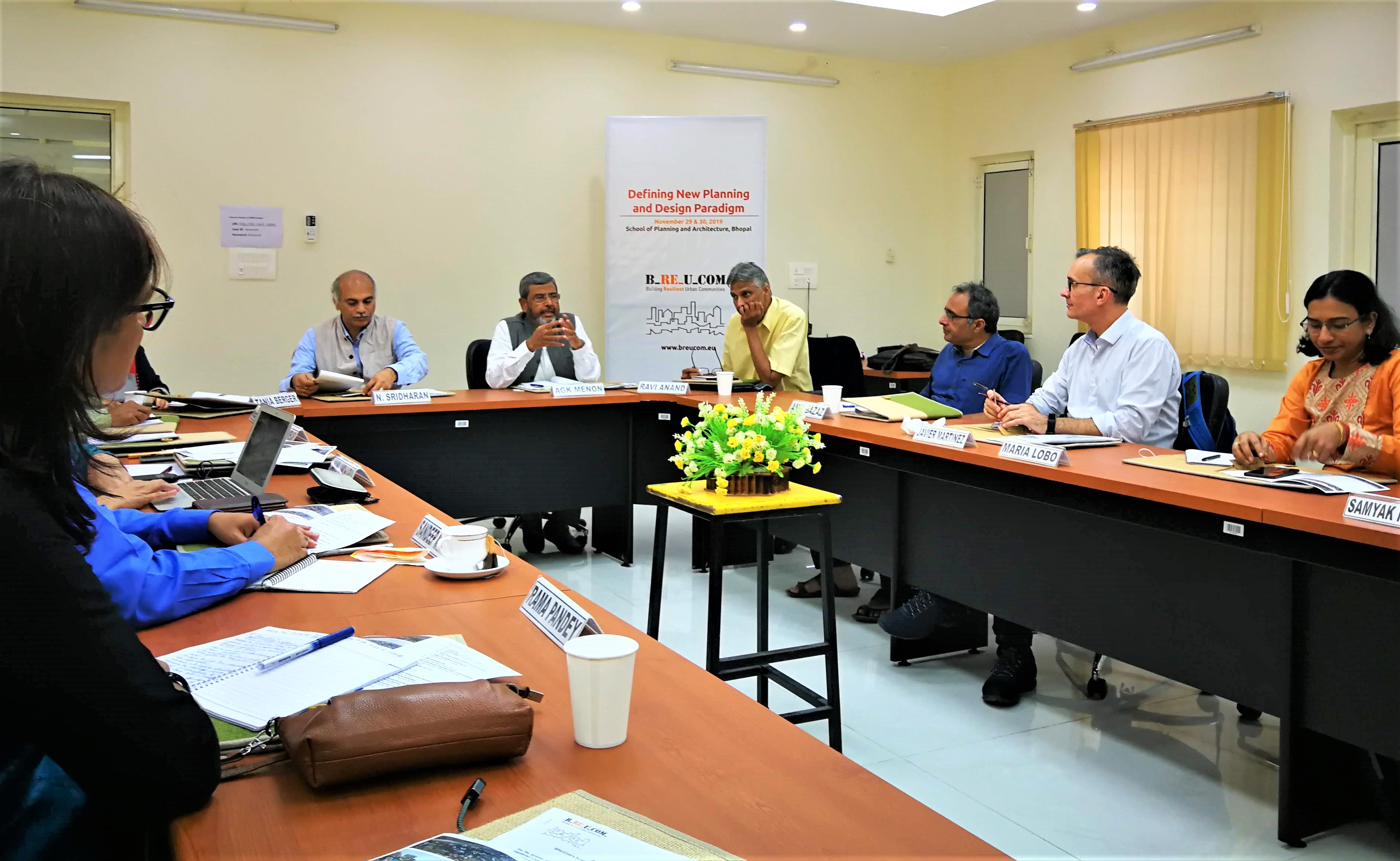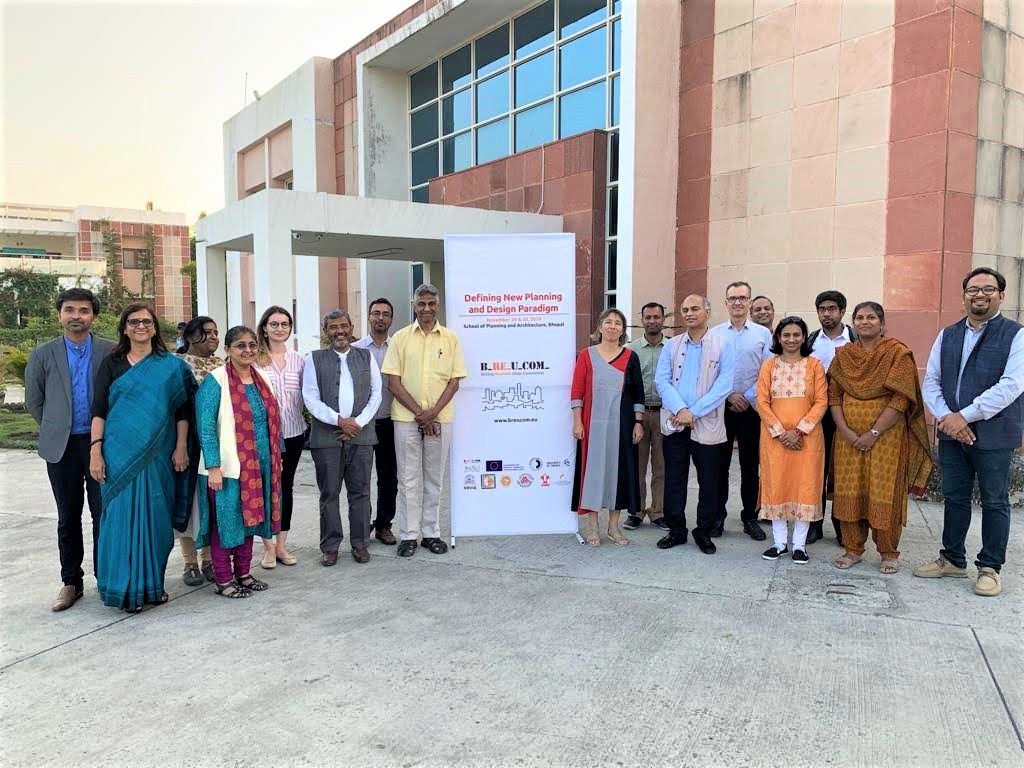Symposium 'Defining new planning and design paradigm', November 29th -30th 2019
|
© SPAB |
|
|
The modern discourse of the Anthropocene and its disconnect with the nature-aligned values has propelled the current sustainability and resilience challenges like climate change, disaster risk, migration. At this juncture, it is critical to rethink the existing Planning and Design paradigms to deal with the emerging challenges, especially concerning the marginalised and informal urban communities, which remain vulnerable to external and internal stresses and shocks.
|
|
|
The overall learnings from this symposium can be summarized by a phrase used by lecturer AGK Menon: “Indigenousize the modern!” This refers to a persistent, strong orientation of planning disciplines in India (and most of the Global South) on Western paradigms. These are in fact derived from circumstances and framework conditions in industrialized countries with high standards of living and wealth. In contrast, India needs its own, specific and localized solutions, which have to be developed here itself. For planning, this requires scholars to take very detailed looks at the conditions on the ground. As Vinita Gowda pointed out, this is also very true with regards to vegetation, especially when it comes to building resilience to global warming: not every plant is suitable for all locations and trees are not automatically supportive. Rather, locally adapt species have to be selected in order to safeguard future plant growth and to keep maintenance efforts manageable. This requires sound knowledge on planners’ side. Likewise, when it comes to finding housing solutions for urban poor, copying approaches from elsewhere can be seen not to work well in an Indian context: multi storey housing remains problematic for most potential residents, especially when built on urban fringes and outskirts far away from job opportunities and without suitable public transport. Furthermore, provision of basic urban infrastructure is still not standard in large-scale housing estates, as documented by Siddharth Shankar, which leaves residents struggling and referring to open defecation. Under these highly complex framework conditions, teaching in the planning disciplines remains a constantly evolving challenge that requires teachers to be extremely open to experiments and to venture into teaching in order to learn and to reapply knowledge gained in the exercise. |
© SPAB |
|
© SPAB |
|
Event photo gallery (click here) |
|
|
Some keynote inputs are available in form of videos here:
|
|


